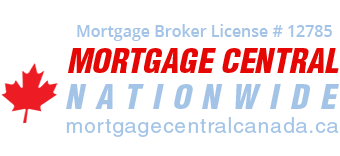Thinking of Using Your Home Equity or Refinancing Your Mortgage?
Do you want to change the terms of your mortgage or do you need money for a big purchase? If you’re on the fence about these, then you might also be wanting to know if it is better to use your home equity or to refinance your mortgage for funding. Read on below to help you make a better-informed decision.
Is It A Good Idea to Refinance My Mortgage?
Take a look at the interest rates. If they are currently lower than when you signed your mortgage, then refinancing might be a good idea now. You have to consider too that refinancing your mortgage means replacing your existing mortgage with another one with different terms. Your lender will calculate your new loan-to-value ratio to see if it is lower than 80% which is often the qualifying number. The lender will also look at your monthly debt payments in relation to income. They’ll ask for copies of recent pay stub, property tax bill, mortgage statement, notice of assessment, T4 slip, copies of recent assets or investments, savings accounts, and RRSPs.
Benefits of Refinancing
Getting a lower interest rate that will save you thousands of dollars over the years is the main benefit of refinancing. Another benefit is lower monthly payments. The cash that you can free up via cash-out refinance can be used to consolidate debt, invested for a venture, or saved as an emergency fund or money for higher education. Don’t forget that you may be able to change your mortgage type and other terms to help you achieve your financial goals faster.
Is it A Good Idea to Tap Home Equity?
Any payment that you make towards your mortgage will go into building your home equity. You can estimate your home equity by subtracting the amount you still owe from the current market value of your home. Once you have a certain percentage of home equity, you’ll be eligible to tap it using a home equity loan. Compared to other types of home loans, a home equity loan has a lower interest rate because it is a secured loan.
Benefits of a Home Equity Loan
A home equity loan will give you access to a substantial amount of cash that you can use to pay for home renovation, home improvement repairs, big purchases like a vehicle or an investment, and a lot more. You can also opt for a HELOC or a home equity line of credit if you think that you will have a series of smaller expenses in the near future.
Note that both refinancing your mortgage and getting a home equity loan will incur fees. You may need to pay for an appraisal, legal fees, and possibly, discharge fees as well as prepayment charges depending on a lot of details. If you have questions regarding the details of a home equity loan and mortgage refinance, do not hesitate to contact us at Mortgage Central Canada. We’re open at these trying times and happy to be of service to you.


